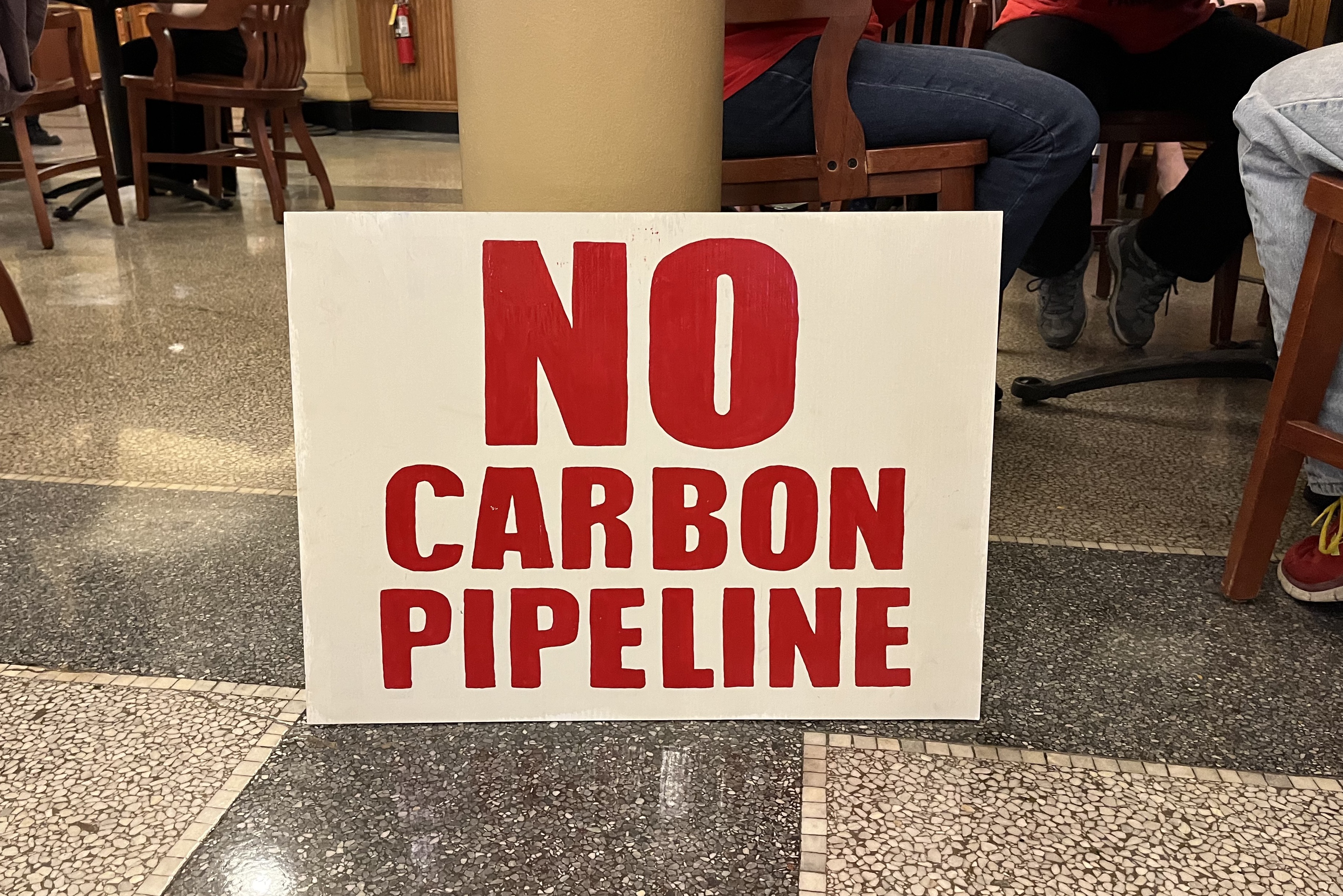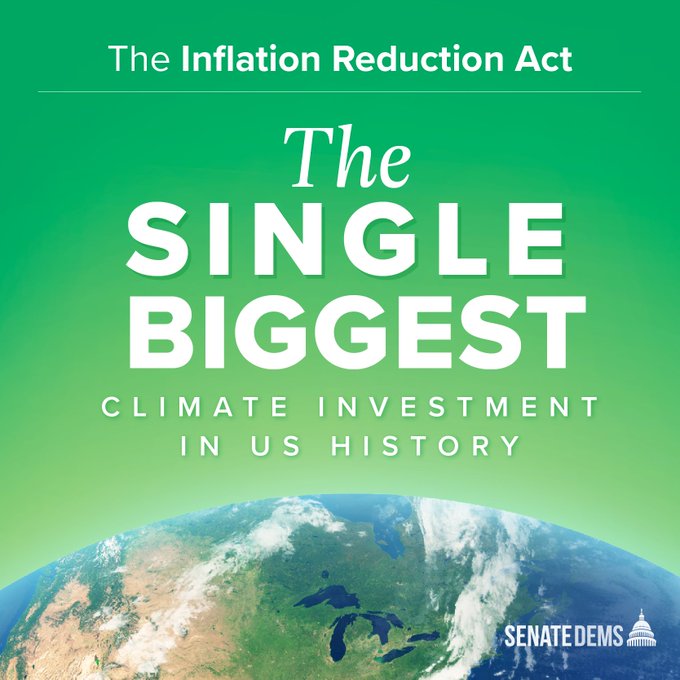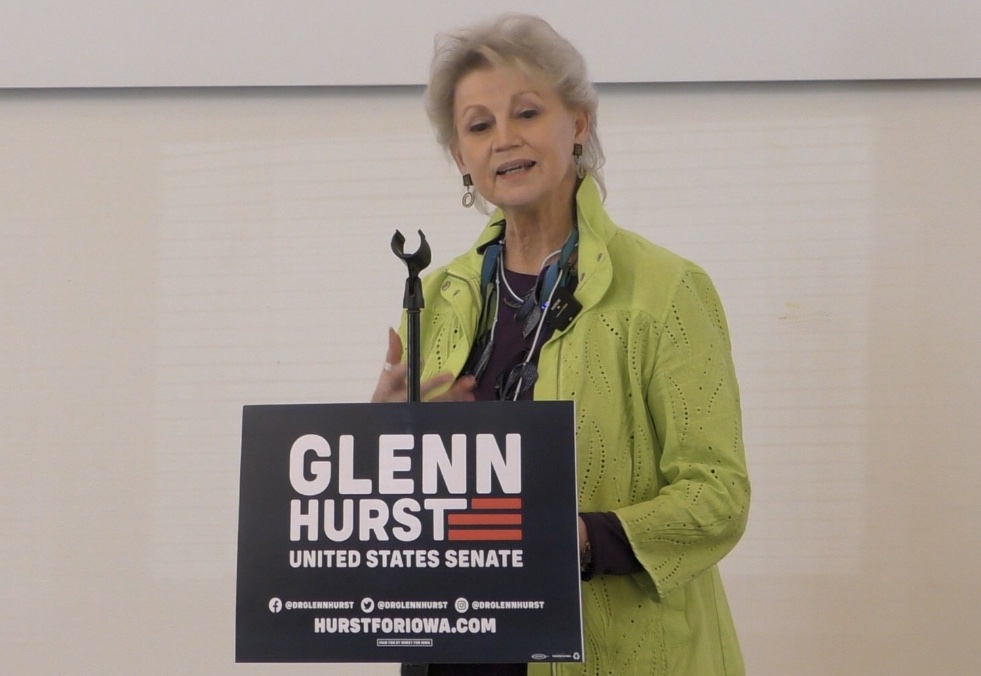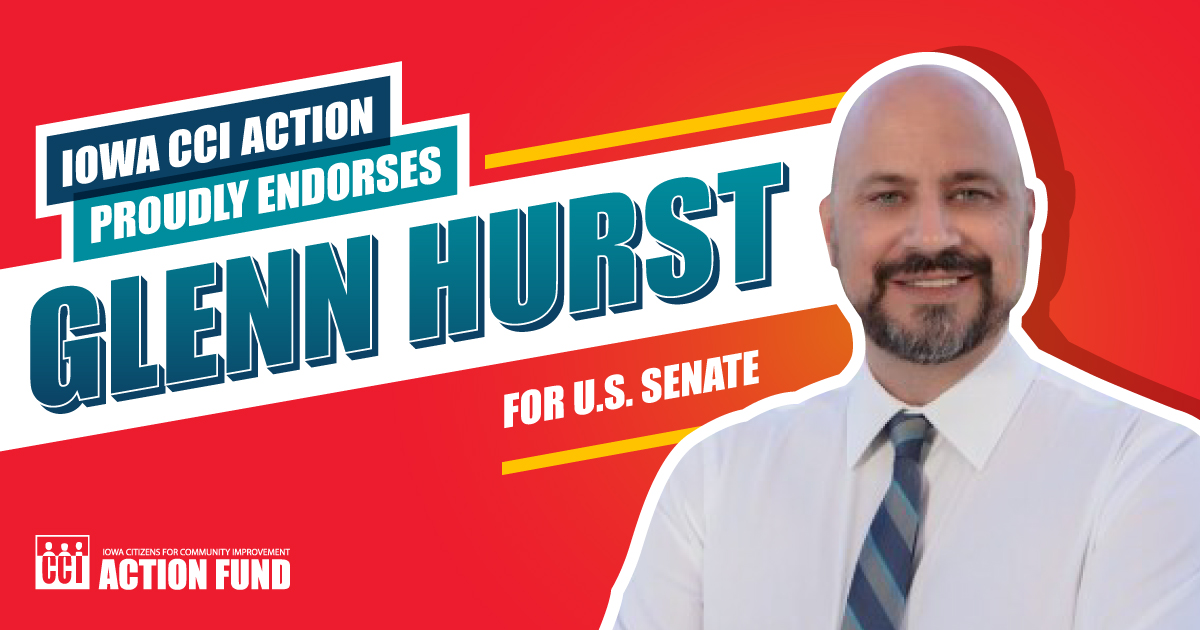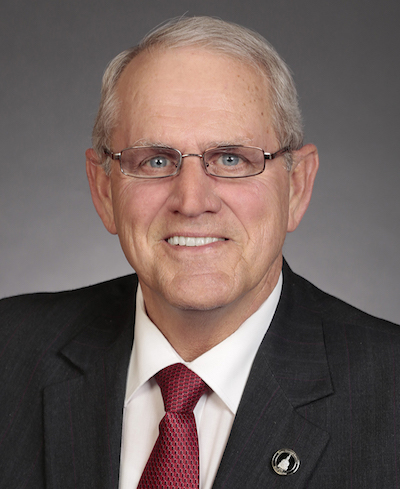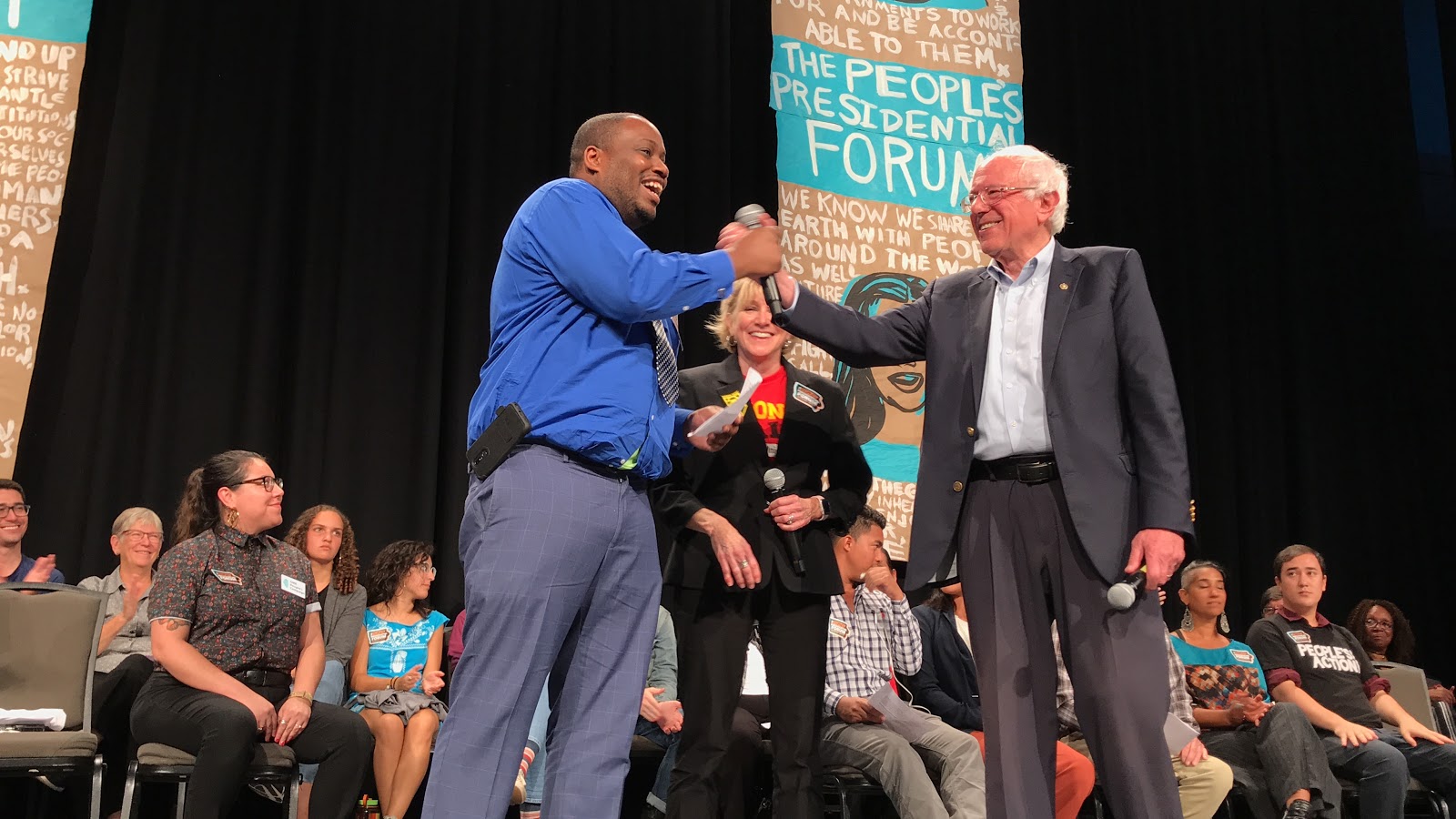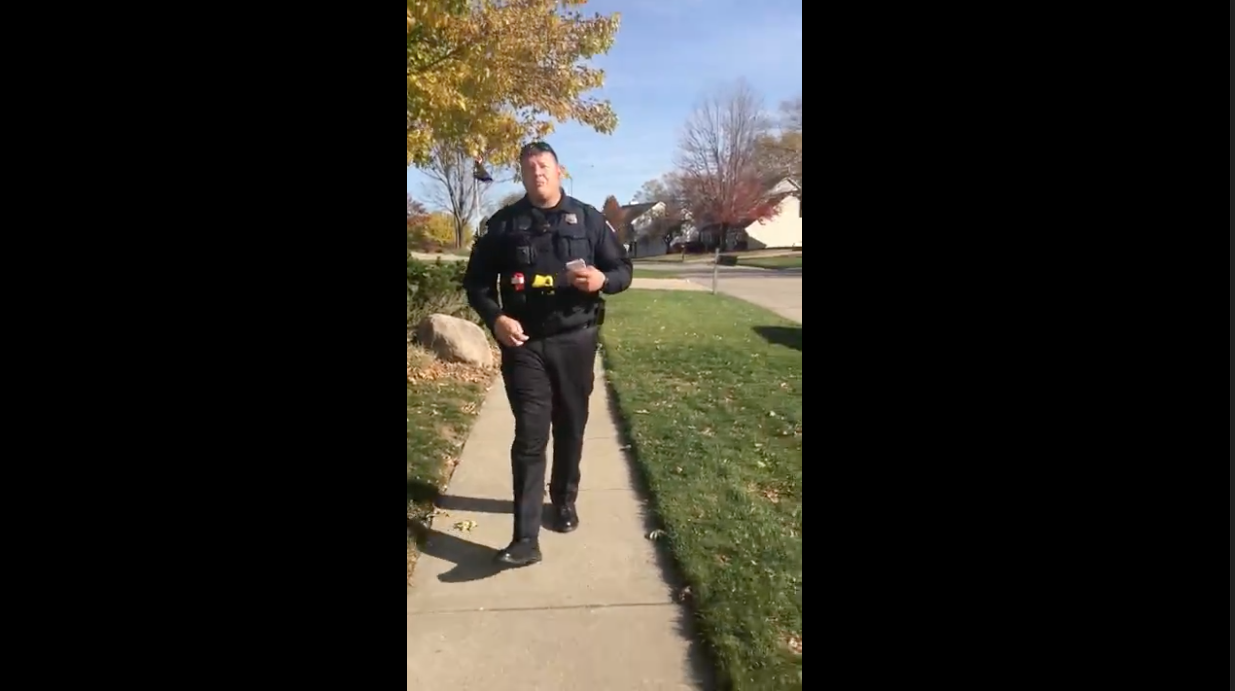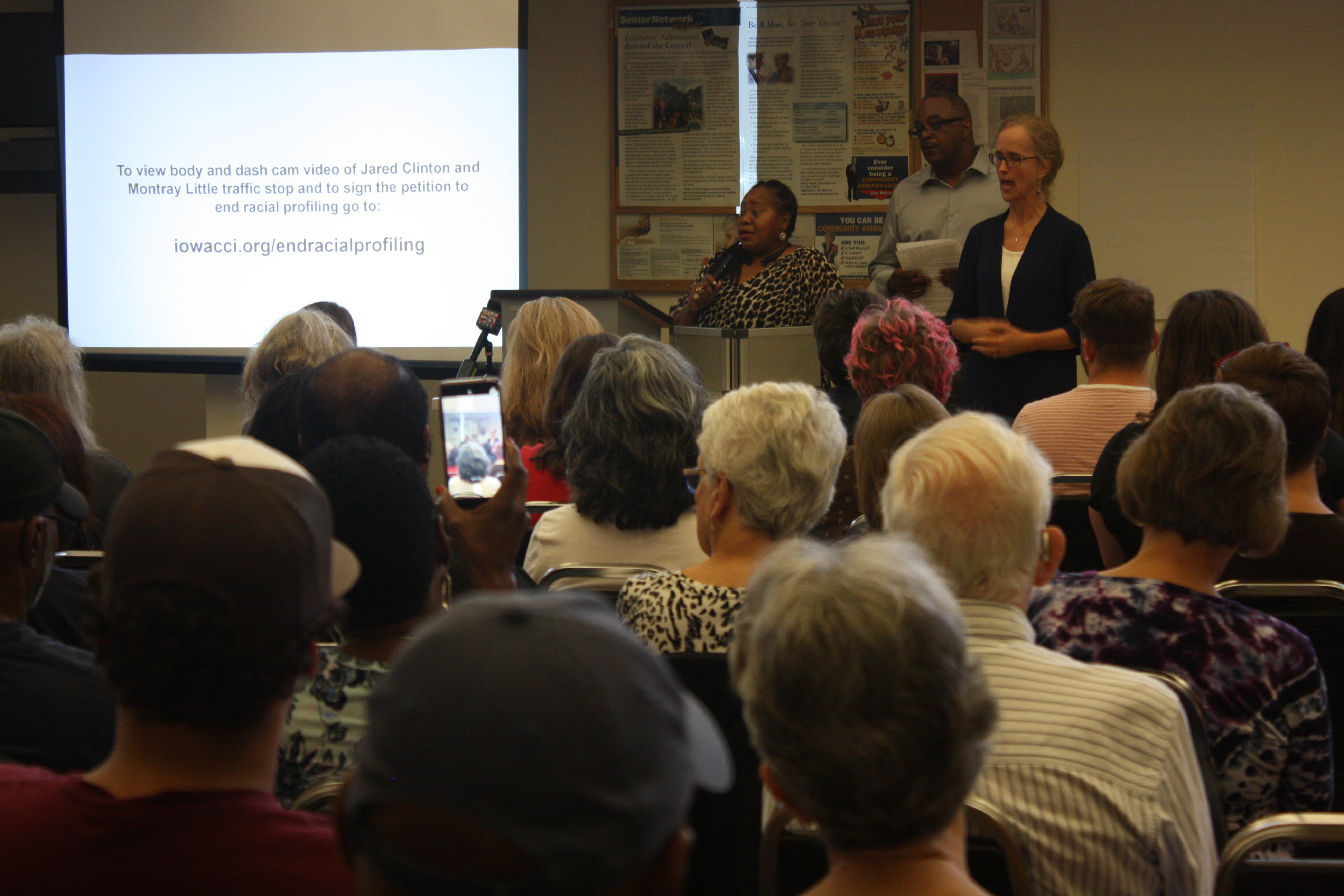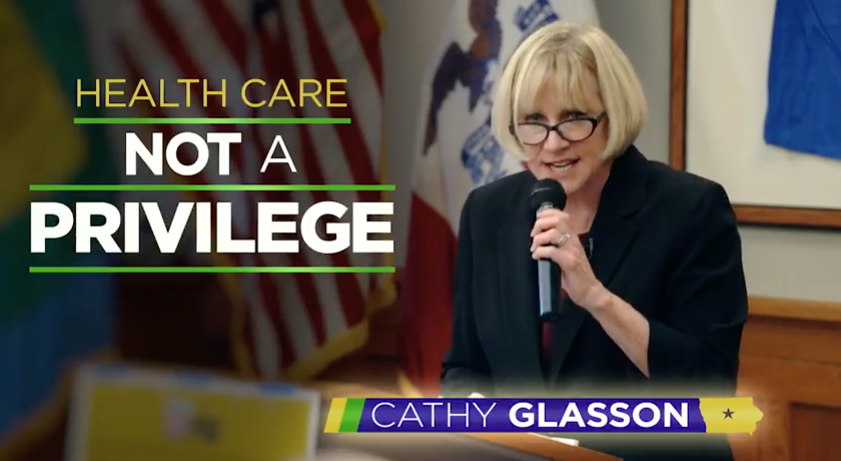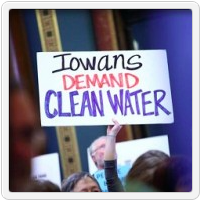Declaring that health care is a “fundamental human right,” and “Iowa should lead the way,” Cathy Glasson is taking her message to Iowa television viewers, beginning January 18. Single-payer health care reform has been a central theme of Glasson’s stump speeches since she began exploring a gubernatorial campaign. Her stance on that issue was a key factor in attracting endorsements from some progressive organizations and many activists who caucused for Bernie Sanders in 2016. It even helped Glasson win over television and movie actor Piper Perabo (hat tip to Christian Ucles). As Gavin Aronsen observed in this Iowa Informer profile, “lefty media outlets” with a national audience “have taken notice of Glasson’s grassroots campaign” too, in part because of her vocal support for Medicare for All.
I enclose below the video and transcript of “Heart,” which will air in the Des Moines and Cedar Rapids markets, according to a campaign news release. The spot is a good way for Glasson to distinguish herself from the rest of the field. Among her six rivals for the nomination, only Jon Neiderbach is also on record supporting single-payer health care. Neiderbach is unlikely to have the funds for substantial television advertising before the primary, though. I am seeking further details on how Glasson envisions creating a state-level universal health care system to replace private insurance and will update this post as needed.
Glasson is the third Democratic gubernatorial candidate to run tv ads this year, after Fred Hubbell and Nate Boulton. Two factors are driving the unusually early start for paid advertising. The upcoming Iowa precinct caucuses will be the first step in a convention process that may select the Democratic nominee, if no candidate receives at least 35 percent of the vote in the June 5 primary. In a departure from usual practice during non-presidential years, many Democratic caucuses will divide into preference groups based on the governor’s race on February 5. Field organizers and volunteers for the various contenders are working hard to turn their people out, because supporters of viable candidates will be able to elect county convention delegates.
Glasson can afford to pay for television commercials now without depleting her resources. Entities affiliated with the Service Employees International Union have contributed at least $1.8 million to her campaign so far, Iowa Starting Line reported on January 16.
UPDATE: Our Revolution, the national group that grew out of Bernie Sanders’ presidential campaign, endorsed Glasson on January 18. In a statement, executive director Shannon Jackson said, “We are proud to support a progressive candidate like Cathy who has such strong ties to the labor community. From her work with the SEIU, to her activism on issues like raising the minimum wage and providing universal health care, Cathy has set herself apart from the competition. Having lived in Iowa her entire life, Cathy knows the needs of the working-class people of all backgrounds. Cathy is a proven leader who will work to ensure all Iowans have access to a good paying job, affordable housing, and quality health care.”
The Iowa CCI Action Fund, which endorsed Glasson in September, announced on January 18 that it will spend $40,000 to support her campaign over the next five months. “The funds will go towards statewide communications as well as grassroots field organizing in seven key counties: Story, Boone, Hardin, Sac, Guthrie, Adair, and Poweshiek.” The SEIU political action committee donated $30,000 to Iowa Citizens for Community Improvement in October, funds that will support Iowa CCI’s state PAC. I sought comment from CCI on the funding and endorsement process; scroll to the end of this post for the group’s reply.
Continue Reading...



